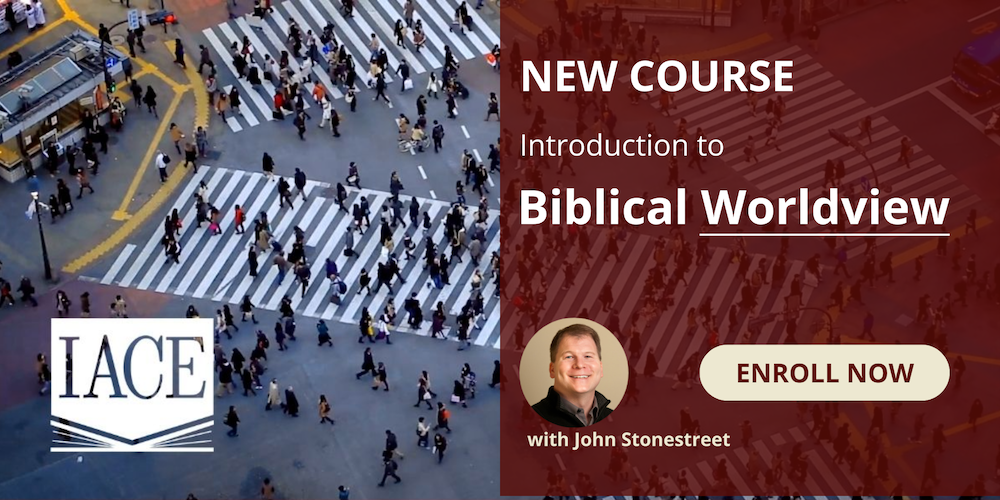Editor’s note: This post is part 3 of 3 in a Primer on Cultural Engagement. Read part 1 here and part 2 here.
When we think about cultural engagement, often the first thing we set our minds to is developing strategies for what types of cultural activities we should or should not be involved in. Additionally, Christians are keen to think through how to redeem particulars of culture as part of the calling to participate in Christ’s kingdom coming to earth. They think about how to create God-honoring art or films, how to magnify Jesus in mopping the floor or voting at the polls, or even how to reclaim sports and Tweeting for the glory of God.
Each of these are proper implications of a biblically informed approach to culture as I have outlined in the previous posts of this series. However, before we can consider what types of things we should be doing or not doing as cultural creatures, we need to have a sense of what attitude we should have towards inhabiting our cultural context. How should we approach life and cultural participation in view of what the Bible says about culture and our callings?
To answer this, I propose that the story of God’s work in history, and finding our place in it, provides important clues to guide our cultural engagement.
How to Inhabit Culture?
For proper Christian cultural engagement, we must certainly keep in view that culture is part of God’s good creation. Several helpful thinkers (Ashford and Wolters are two great examples) have offered strategies for thinking about the creational aspects of culture that we ought to pursue, such as having a family, creating art, exploring the world through science, and ordering our societies through politics and law. These are helpful things to keep in mind to justify why as Christians we cannot neglect our cultural lives and vocations.
However, simply paying attention to the beginning of history and God’s creational designs for culture does not take us far enough in understanding how to inhabit culture, and how culture fits with the other callings imperative for the Christian life.
Christians throughout history have embraced vastly different attitudes towards culture. For many early Christians, the calling they felt was to create enclaves within society in which Jesus could be worshiped as Lord rather than Caesar. For other early Christians, they understood their cultural calling to seek the common good and be exemplary citizens within society. Still others sought distance from what they saw as the polluting effects of culture by moving to the desert to pursue virtue and contemplation.
We can see examples today of each of these attitudes embodied by Christians. How do we know what attitude and stance to take? How do we know what Christians are called to in our own time and place? Let us start by asking, “What time in history is it?”
What Time Is It?
To think well about cultural engagement, we need to know what time it is. That is, we need to pay attention to where we are at in God’s grand story of history, parsing what he has done before us and what he has said he will do at the end of history.
When we think in terms of our current place in history, we realize very quickly that we do not live in the time of Genesis 1-2. In fact, we do not merely live in the time after Genesis 3, in which humanity becomes irreparably bent by sin and all their cultural labors are misdirected away from God’s ways.
Rather, we live in the time after God’s promises to his people throughout the Old Testament have found their answer in Christ Jesus. We live in the wake of the incarnation, when God the Son became man to rescue us from sin and offer us a new heart bent towards him and his ways (Ezek. 36:25-27). Even more, we live after Christ’s resurrection, and the dawn of the age of the Spirit, who was given to his church to unite them to himself and propel them into the world to proclaim his Gospel (John 20:21-23).
In brief, we live in-between the first and second comings of Christ, and this should have a great impact on how we think about cultural engagement as Christians. In this age of history, we know our destiny: for those who know Christ, we will live forever face-to-face with God. We also have clues about what will take place when he returns, and what to expect life will be like for many Christians (John 15:18-22). But about many of the particulars of history in this in-between time we have been told very little by God.
Thus, to consider how to inhabit time and place and to go about our cultural labors properly aligned with God’s ways, we need to pay close attention to what he has said about this era of history in which we live. We do know that we are to be united to the Father by the Son and in the Spirit in order to worship him and live as he destined human beings to from the beginning. Christ is the new Adam, and we are to be like him (Rom. 6:1-14). This calling certainly takes us back to Genesis 1-2 to consider what God created humanity for before sin entered the world, and from this what exactly Christ recapitulates for us.
But we must also consider the callings unique to the era of history that Christ has given us. We are to make disciples, proclaim the gospel, teach others to follow after Christ, and represent him to the world. These are all cultural actions, and echoes of what was commanded to Adam—but they are given particular direction through the mission of proclaiming to the world the good news of the gospel that Jesus gave to the church.
Living in the Time In-between
As Christians, it is never a question whether to engage culture, but how, and the defining tasks of this age direct the manner in which we participate in the cultures around us. The commands of Christ shape our attitudes and priorities for cultural life in this age so that we can know how and how not to be cultural in this time in between his comings.
Seeing our place in history as a time in-between the first and second comings of Christ helps us hold in balance our sense of the goodness of human vocation, of art and science, learning and leisure, with our sense of the importance of growing the church, preaching the good news, and pursuing justice and blessing the poor. When some Christians approach the discussion of cultural engagement, they tend to prioritize the creational or vocational elements of what humanity is made for. Other Christians tend to prioritize what callings Christians distinctly possess. Both approaches attribute primacy to certain callings in exclusion of others.
But these can be better held together by paying attention both to what we are made for as creatures whose mode of existence is cultural, and to the particular tasks given to us in light of what Christ has done in history, namely bring salvation from sin and commission the church to proclaim his soon return to restore all things.
The mount of Christ’s ascension and the mission he gave to his disciples before he departed should loom as large in our cultural imaginations as the Garden of Eden and the callings God gave to humanity at the beginning.
Conclusion
Let us sum all of this up briefly. Culture is something we are made for and is the way in which we magnify God throughout his creation. What we do with God’s creation, through our creativity, our ways of communication, our values and stories and tastes, are all the stuff of embodying God’s image in his world. This is an important foundational recognition for thinking about cultural engagement.
But it is not enough, because we do not live in Genesis 1-2 time. We live in John 20 and Acts 1 time, called to a particular mission in this particular age of history as we await his return. Any way we engage culture should be motivated by both the Great Commandment of loving God and neighbor (Matt. 22:37-40) and the Great Commission of going and telling the world about him (Matt. 28:19-20).
If you want to explore culture and Christian worldview in more depth, then consider our new course Introduction to Biblical Worldview with John Stonestreet.
Dennis Greeson is Dean of the BibleMesh Institute and Research Fellow in Public Theology for The Land Center for Cultural Engagement. He teaches and writes on theology, culture, and public square issues.

